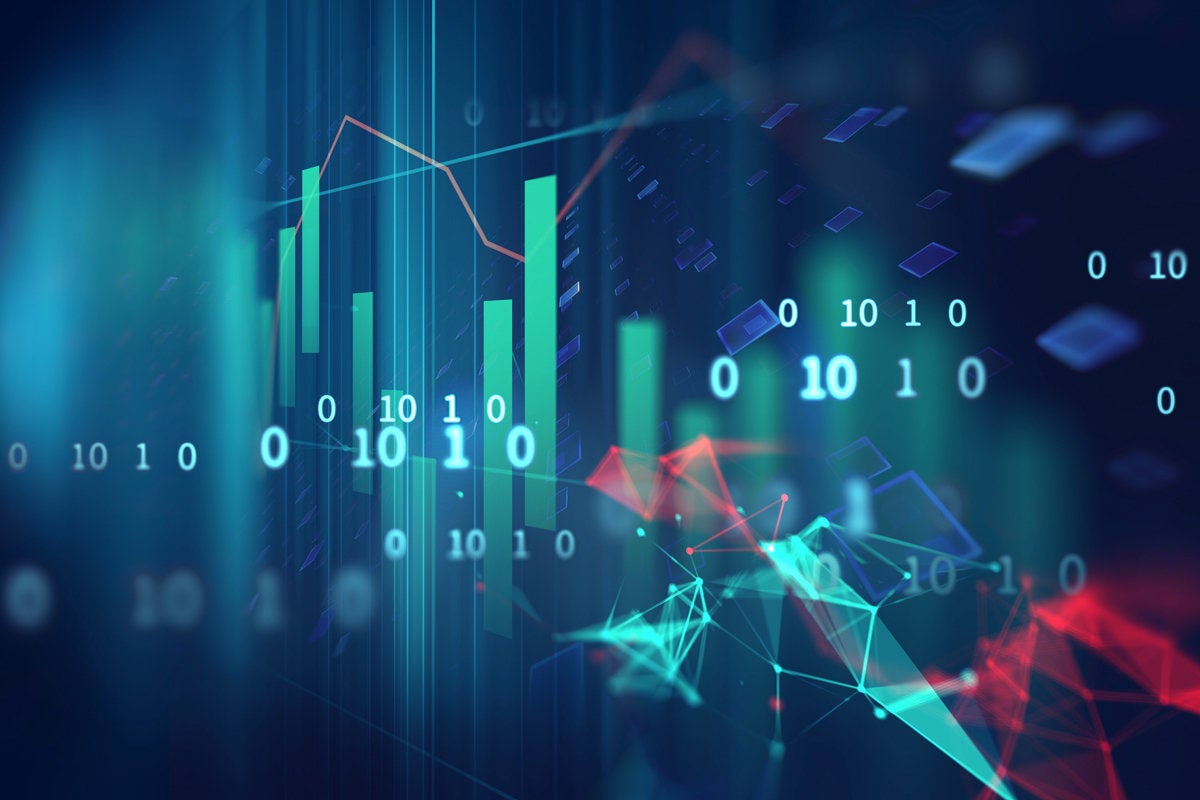Reduce process bottlenecks with process advisor for Power Automate, now generally available

“Process advisor simplifies the hardest thing about process analysis – sharing
details of a process across an organization. With the recording and sharing
function in process advisor, it makes it very easy for process and business
analysts to collaborate and to identify opportunities to optimize their
automation workflows.” —Brian Hodel, Principal Power Platform Developer,
T-Mobile. Learn more about T-Mobile adding RPA to their Six Sigma toolbox. “By
leveraging RPA in Microsoft Power Automate we anticipate a time savings of 90
percent in processing time for our operations, and the potential to see reduced
maintenance cost of up to of 20 percent, which aligns with our value of
simplicity in our manufacturing work. Looking forward, we are excited to gain
deeper insights into how we work and where we might benefit from automation with
process advisor to streamline and digitize our operator rounds.” —Linda W.
Morris, Enterprise Automation Lead, Chemours. Learn how Chemours automated SAP
reducing processing time. “Process advisor allows us to gain real insights
into how work is getting done.
Why Conscious Economics Is the Leadership Style of the Future
Conscious consumerism and conscious investment are not new philosophies.
Conscious investment, often referred to as “impact investing,” is a market worth
more than $700 billion annually with 20% projected yearly growth. As its name
implies, impact or conscious investing is practiced for the intent of benefiting
from better investment decisions for the good of companies, customers and
society as a whole. Conscious consumerism has likewise been on the rise in
recent years with more consumers choosing to shop at local smaller businesses
rather than retail giants. When we combine both of these together to encompass
the “conscious” aspect for investors, businesses and consumers alike, it creates
the dynamic referred to as “conscious economics." I was first introduced to this
term two years ago when I attended an event by the Economic Club of Canada in
Toronto. The event was headlined by a conversation between former President
Barack Obama and Rhiannon Rosalind, the club’s president, CEO and owner. ... In
other words, as aspects of our societies change and evolve around us, so too
does our own inherent psychology — particularly our motivations for making
changes to our way of life.
The rise of the cloud data platform

Many companies have different terms for what I’ve termed the cloud data
platform. Oracle, for example, labels it the “enterprise data management cloud.”
Nutanix uses the term “enterprise cloud.” And Cloudera, which offers a platform
called the Cloudera Data Platform, actually calls the category the “enterprise
data cloud.” “The enterprise data cloud is incredibly important to regulated
verticals like banking, telcos, life sciences and government,” Cloudera’s
Hollison said. “And they don’t want, for example, to have a bespoke security and
governance model for each individual analytic function.” The structure imposed
on regulated organizations by, well, regulations benefited them last year, when
they needed to grow their universe of data sources. But for those without a
common structure to help engineers prepare and manage data from two related but
separate silos found themselves wholly unprepared for the task. For them, part
of the obstacle was that, almost by default, an enclosed model with its own
dedicated dataset comes with all the data preparation and engineering, security,
governance and MLOps it needs.
Rise in Opportunistic Hacks and Info-Sharing Imperil Industrial Networks
Brubaker, who worked on the Mandiant incident response team for the Triton
attack, says that worries him. "These actors are building expertise and
willingness [to make] contact with other actors. What if they meet up with a
ransomware group" and combine forces, he asks. "That would make ransomware more
impactful on OT." That concerns him. Dragos' Sergio Caltagirone, vice president
of threat intelligence at the ICS security firm, called the City of Oldsmar
attack "the perfect example" of the type of ICS attack his firm frequently sees.
It's not so much the feared, sophisticated ICS custom-malware type of attack by
more well-resourced nation-state hackers, but threat actors breaking in via
unknown ports left wide open on the public Internet, or weak or compromised
credentials. "A network that is unprepared and indefensible, but by an
organization doing their best but that's chronically under-resourced and
under-funded to protect itself ... it's a confluence of [more adversaries]"
going after ICS networks and a failure of these networks to operate the most
basic security practices, Caltagirone says.
IoT helps make return-to-work safer

Innovatus Capital Partners, an independent adviser and portfolio-management
firm, wants to ensure that as business leaders and employees return to the
office their expectations for clean, safe environments are met. To that end, the
firm has deployed a smart air-quality monitoring system at its offices in
Illinois and Tennessee. The system combines technologies from Veea, an
edge-computing company, and Wynd Technologies, a provider of portable air
purifiers. “Workers re-entering the commercial office space after Covid-19 need
assurance that they are in the cleanest environment possible,” says Bradley
Seiden, managing director at Innovatus. “That means you have to be able to
measure the environment—specifically the air quality in the environment.” The
company deployed air-quality monitoring sensors throughout common areas where
they collect air metrics such as mold and CO2 levels, temperature, humidity,
etc. The sensors can also identify the presence of airborne particles with
signatures that might indicate the presence of coronavirus and various flu
strains.
Four proactive steps to make identity governance a business priority
In many cases, employees have access privileges to company information that they
don’t need. This has only proliferated during the COVID-19 pandemic. Consider
all the hiring changes—millions being laid off, furloughed, adjusting to remote
or hybrid work models, taking up side hustles or gig jobs, or getting new jobs
as the economic dust settles. Ensuring access is revoked when employees go and
that new hires only have access to what they need is an arduous task, and one
that many businesses let fall to the wayside. Deprovisioning is the best way to
address this problem, but revoking privileges can create IT downtime, disrupt
workflow, and is another undertaking many aren’t signing up for voluntarily. But
when you consider that all it takes is one disgruntled former employee or savvy
hackers ready to take advantage of your loose access privileges, it’s time to
get serious. Fortunately, automation can help streamline the deprovisioning
process by matching privileges and access of users to the level of security
those systems require. From there, the system can automatically restrict a
user’s access to certain enterprise systems based on their role.
How Data Science and Business Intelligence Can improve Strategic Planning in organizations?

Data science consist of various methods and processes that support and guide the
extraction of information and knowledge from raw data. Data Science if used
properly has vast applications in business. A business analyst will work with
business administration and take part in EDA which is an approach to analyze
datasets, summarize their main characteristics, working with the data and
refining the data so that it can be put to use productively. With large amounts
of data at our disposal, businesses can make better business, financial and
marketing decisions. If a business has previous data of which product sold well
at which time or at which locations, they can work in a way to increase sales.
Big Data helps retail outlets and fast-moving consumer goods sellers a lot. With
proper data, various important decisions can be made which can improve profits.
Data-driven decision making has many applications. For example, in Finance, it
might be figuring out the most cost-effective way to use cloud services, or hire
new staff. Or it might be the cheapest way to promote a new product.
Let’s Talk Quantum – In Defense & Warfare
This article is NOT intended to showcase the dark side aspects of quantum
computing, rather intension is to highlight the possible applications of this
groundbreaking technology. Defense scientists of many countries are taking a
closer look at the impact that Quantum Computing, Quantum Communications and IoT
will have on their national security and defense. It is believed that of the two
areas, Quantum Encryption and Quantum Sensors will have an enormous impact in
this field in coming years. Use of quantum computers in communications that can
revolutionize Underwater Warfare is of paramount importance in the defense
world. The Quantum Computation and Quantum Communication will also revolutionize
“Defense Logistics”. Declining cycle times, increased awareness of the situation
and more efficient communication are just some of the advantages that quantum
computation or quantum communication will offer in the field of Defense
Logistics. Technologies like Artificial Intelligence, Virtual Reality, Augmented
Reality and Blockchain are already in use to enhance defense capabilities.
Combatting Insider Threats with Keyboard Security

The human interface device, the keyboard, often overlooked when companies look
to implement internal security measures, is also the place where almost all
insider threats begin. Organizations need to prioritize the use of
security-enhanced keyboards that can stop threats before they can even be
entered into the network. Many well-known thin client manufacturers already
support the use of secure mode and have integrated the necessary software for
this. Recent keyboard improvements can also now provide higher security
through two-factor authentication using a smart card. Keyboards can also now
come equipped with a contactless card reader that can read RFID and NFC cards
or tags. These new security-equipped keyboards can make an array of safety
applications possible; for example, ID systems can be used for closed user
groups via the keyboard, and company IDs can be easily read in. These
keyboards can then be partnered with innovative mouse technology, that have
integrated fingertip sensors for user authentication, to greatly improve
security.
Cloudless IoT: IoT Without the Cloud

Privacy is not the only reason why you’d want to avoid the cloud. Other
reasons include stability, persistence, data privacy, security, and necessity.
When it comes to stability, if the Internet connection is unstable, the cloud
may be difficult to reach, making the system unstable. In persistence, cloud
services may go away, so avoiding the cloud may allow the IoT system to run
forever without relying on the hosting company to persist. Additionally, with
data privacy, sometimes data should not leave the location where it is
generated and a secure network can provide fewer network connections meaning
fewer attack vectors. Lastly, sometimes there just isn’t Internet access. Any
cloud-based software may become unreachable if the cloud goes down. It can
happen to the best of us. Any IoT solution that wholly depends on the cloud
will go out if the cloud goes down. Even worse, the cloud may go away
altogether. Maybe the company that runs the servers goes out of business. Or
maybe it just isn’t economically viable to keep it running. This has happened
many times. Sometimes the reason for not wanting to use the cloud is very
simple: Internet access just isn’t available.
Quote for the day:
"Leadership is liberating people to do
what is required of them in the most effective and humane way possible." --
Max DePree
No comments:
Post a Comment